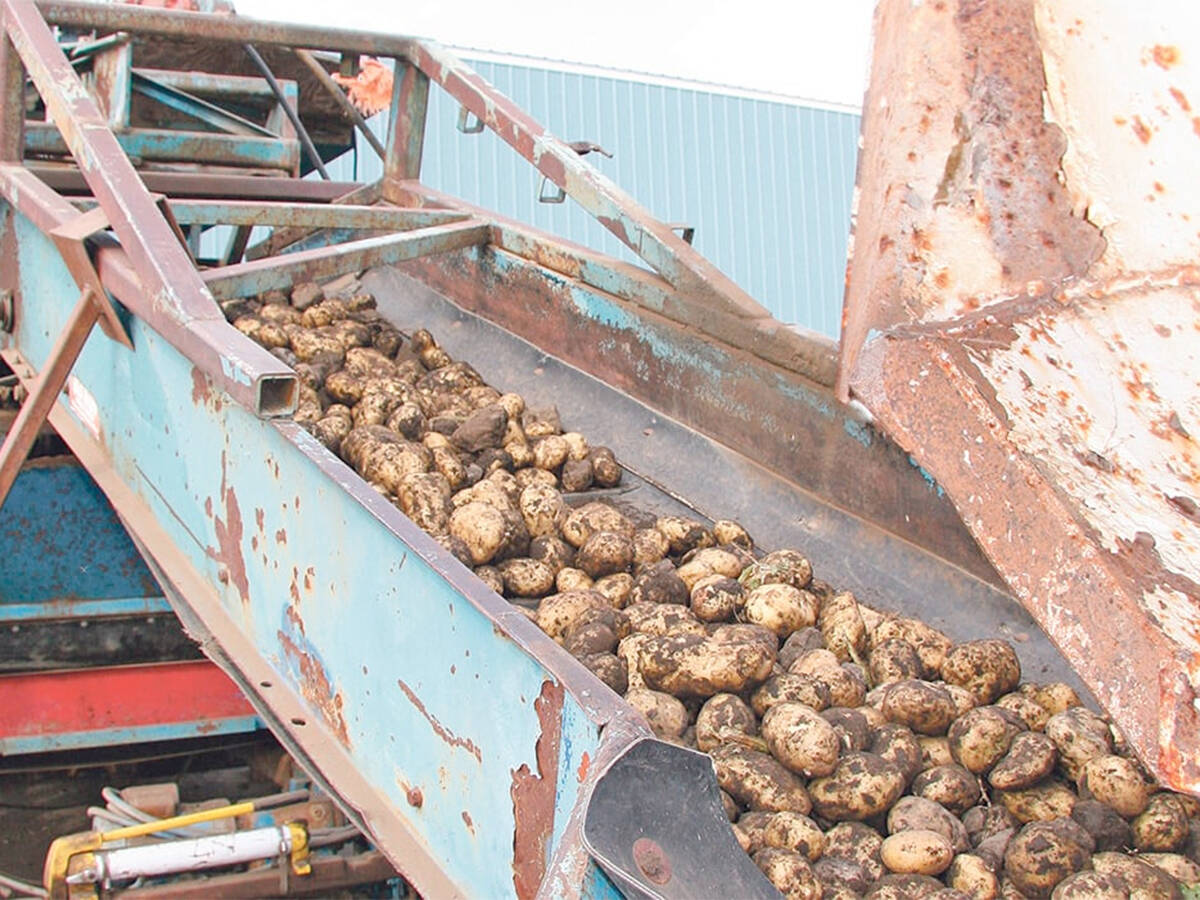Manitoba’s pork producers may not know the exact impact from China’s tariffs against the United States, but they know it’s coming.
The U.S. pork sector has been caught up in the latest round of trade volleys between the United States and China.
The Chinese government announced a sweep of tariffs April 1, blaming new U.S. tariffs against steel and aluminum, in effect since March 23. Pork is among eight products facing an extra 25 per cent penalty, China’s Finance Ministry announced. In another blow, China announced that it would not roll back tariffs on 120 other U.S. products as obligated by the World Trade Organization (including fruit, nuts, sparkling wine and ginseng), but would be raising them by 15 per cent instead. The tariffs impact an estimated $3 billion of U.S. goods and came into effect April 2.
Read Also

Potato growers beware new PVY strains
Newer strains of potato virus Y (PVY) are creating headaches for potato farms in Eastern Canada, and Manitoba farmers should pay attention
Manitoba’s pork sector expects to take a hit alongside the U.S., given how closely the two are tied.
Andrew Dickson, general manager for the Manitoba Pork Council, says market uncertainty from the tariffs will directly impact prices north of the border.
“In Canada pretty well all our producers, our own formulas, are based on the national base price in the United States… if they get less money, there’s disruption in the marketplace, our producers will automatically get less money,” he said.
Tyler Fulton, director of risk management with H@MS Marketing Services, estimates that U.S. hog price will drop three to five per cent as a result of lower volumes and demand. That price drop will transfer directly to Canadian producers in the short and medium term, he said.
“All of the hogs that are sold to packers in Western Canada are typically sold on a long-term contract that references a U.S. pricing point and then there’s some conversions that happen that include the conversion into Canadian dollars and also just some things that kind of reflect just what defines the relationship between Canadian and U.S. pigs,” he said. “It’s really just a straight, direct function of what those American prices are.”
Prices may adjust, however, if the current situation extends longer than 10 months, he added.
“If Canada consistently has a comparative advantage over its U.S. counterparts in terms of export markets and export potential, then you could make a pretty solid argument that those past relationships that are worked into those long-term packer agreements need to be changed, need to be adjusted, because the gains would just accrue then to Canadian packers as opposed to Canadian packers and producers,” he said.
In terms of live exports from Manitoba, Fulton added that a drop in U.S. hog market price tends to trickle back towards weanling prices.
Manitoba is Canada’s largest producer of piglets and exports a steady stream of feeder pigs south of the border, although Dickson says it is too soon to see if the tariffs will impact that demand.
Producers south of the border are also waiting to count the impact of the recent changes.
Trent Thiele, president elect of the Iowa Pork Producers, said he was disappointed to hear about the tariffs, but was unsure how hard it would hit their industry.
“There is a little concern but nothing extreme because we understand the negotiation process and we’re hoping that this is all part of that yet,” he said. “There’s always going to be some retaliation here and there. It sucks that it ended up being on our products but in the end game I hope it’s better for everybody.”
A silver lining?
Canadian processors may be able to move in on Chinese market share thanks to the tariffs, both Fulton and Dickson said, although Fulton noted that advantage will be split with other regions, such as Europe, that will also be eyeing the vacuum left by the U.S.
Dickson also cautioned that it might create a catch-22 between producers and processors in Manitoba.
“They’re going to be in a dilemma because they don’t want our producers pulling back on production because they’re getting a lower price,” he said.
The Manitoba Pork Council is still hoping for a return to normal trade patterns, although the growing trade tension between the U.S. and China continues to make news.
As of April 9, the U.S. may be on the cusp of another tariff hike, impacting a reported $50 billion of Chinese products. The U.S. has accused China of misappropriating technology from foreign companies (an accusation China has denied) and has pulled together a list of 1,300 potential targets for a proposed 25 per cent tariff, the Associated Press reported in the first week of April. In response, China threatened tariffs on a similar $50 billion of U.S. goods April 4, including soybeans, to the dismay of American farmers.
“We’re hoping that cooler heads will prevail and everybody will sort of get hold of themselves and say, ‘This is a really bad idea. It’s not going to help anybody and let’s all go for a walk, come back and rethink our positions,’” Dickson said.
Additionally concerning, according to Fulton, is a general trend towards protectionist trade policy.
He argued that the U.S. should give some sign, such as a finished NAFTA deal, to reassure a market currently on edge about the future of free trade.
















